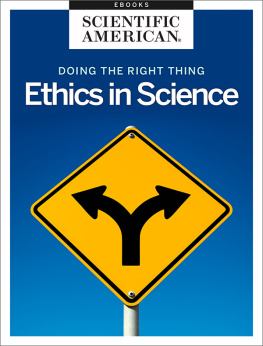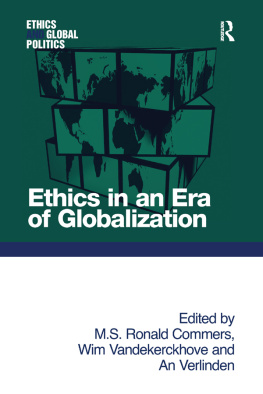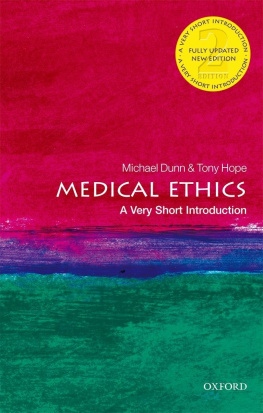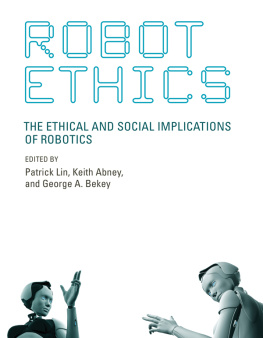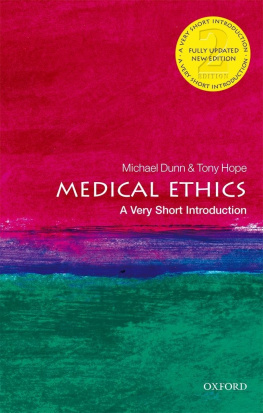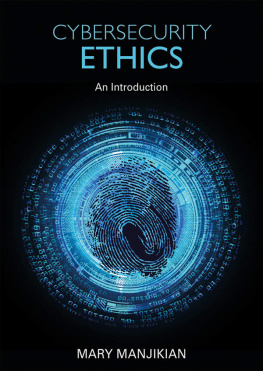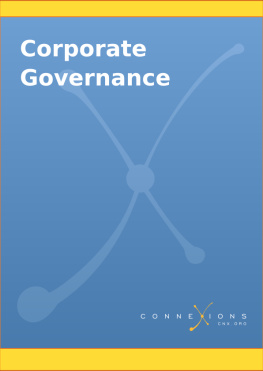Science, Ethics, and Politics
First published 2012 by Paradigm Publishers
Published 2016 by Routledge
2 Park Square, Milton Park, Abingdon, Oxon OX14 4RN
711 Third Avenue, New York, NY 10017, USA
Routledge is an imprint of the Taylor & Francis Group, an informa business
Copyright 2012, Taylor & Francis.
All rights reserved. No part of this book may be reprinted or reproduced or utilised in any form or by any electronic, mechanical, or other means, now known or hereafter invented, including photocopying and recording, or in any information storage or retrieval system, without permission in writing from the publishers.
Notice:
Product or corporate names may be trademarks or registered trademarks, and are used only for identification and explanation without intent to infringe.
Library of Congress Cataloging-in-Publication Data for this title is available from the Library of Congress.
Designed and Typeset by Straight Creek Bookmakers.
ISBN 13: 978-1-59451-996-3 (hbk)
ISBN 13: 978-1-59451-997-0 (pbk)
With gratitude for the friendship and support of David Easton and Bettye Vaughen.
In loving memory of Frank Lynch.
Contents
Kristen Renwick Monroe
Francisco J. Ayala, Kristen Renwick Monroe, and Nicholas Lampros
Francisco J. Ayala
Rose McDermott and Kristen Renwick Monroe
Rose McDermott
Michael L. Spezio and Adam Martin
Kevin S. Reimer, Michael L. Spezio, Warren S. Brown, Gregory R. Peterson, James Van Slyke, and Kristen Renwick Monroe
Jennifer L. Hochschild and Kristen Renwick Monroe
Jennifer L. Hochschild
Kenneth J. Arrow, Kristen Renwick Monroe, and Nicholas Lampros
Kenneth J. Arrow
Thomas Schelling and Kristen Renwick Monroe
Thomas Schelling
Cheryl Koopman and Bridgette Portman
Cheryl Koopman and Nicole Wernimont
Gilbert Geis and Bridgette Portman
Joseph F. C. DiMento and Gilbert Geis
Kristen Renwick Monroe, Chloe Lampros-Monroe, and Peter Hawkins
Kristen Renwick Monroe and William Chiu
Kristen Renwick Monroe
Science and ethics are unusual bedfellows. Traditionally, scientists proceed from empirical observation of some phenomenon to constructing explanatory theories that are seldom normative in nature. Conversely, ethical issues conventionally fall in the domain of the philosopher or the theologian and start with first principles. Courses on ethics typically stress the classics, telling students of the works of Kant or the Utilitarians, for example, and then posing ethical dilemmas to help the student work through the process of moral choice after having been informed of the canon in ethics. In this volume, we take a different tack. We present work that utilizes the tools of sciencebroadly conceptualizedto elucidate ethical issues, assuming that careful scientific analysis of ethical issues can reveal new insights. We supplement this with conversations with the authorssome of the pre-eminent scientists addressing issues of ethicsto learn how they came to the study of ethics and how they analyze and think about ethical issues. This volume thus provides substantive insight into particular ethical issuesranging from issues of torture during war to parents obligations to childrenbut also reveals how a scientific approach might lead to different insights into these issues than does the more traditional approach.
All of the chapters in this volume were presented at the University of California at Irvine, at the UCI Interdisciplinary Center for the Scientific Study of Ethics and Morality. The authors come from widely diverse fields, from economics and political science to biology, logic and philosophy of science. We publish these to demonstrate the contribution of the scientific analysis of ethical issues and to encourage others to pursue such work. Each chapter is preceded by a short interview with one of the authors, to set the focus for their work. We ask authors how they came to do this particular work, what they believe their contribution has been to the debate, and what unanswered questions they hope others will focus on in later work. We tried to choose some of the most interesting original pieces presented at the Center, on topics that would have broad appeal. Space constraints meant many excellent works could not be included; perhaps some of these can appear in a later volume.
The book opens by directly addressing the issue of science and ethics. Francisco J. Ayala, the 2010 recipient of the Templeton Award for his work on science and religion, sets the tone for the volume by arguing that nothing in the world of nature is outside sciences province, a universality we owe to Darwins discovery of natural selection. Ayala begins by showing how Copernicus, Kepler, Galileo, and Newton, in the sixteenth and seventeenth centuries, ushered in a conception of the universe as matter in motion governed by natural laws. Darwin completed the Copernican revolution by extending it to the living world with his theory of natural selection, the process that explains the design of organisms. The origin of species and the exquisite features of organisms had previously been explained as special creations of an omniscient God. Darwin brought them into the domain of science. The argument-from-design to demonstrate the existence of God based on the functional design of organisms has been revived in the last two decades in the form of the so-called Intelligent Design (ID). Ayala argues that intelligent design has no scientific cogency whatsoever. Moreover, he finds that intelligent design imputes attributes of the Creator contrary to those held by many people of faith. Indeed, Ayala concludes that in view of current biological knowledge, intelligent design amounts to blasphemy.
Ayala concludes with a brief reflection about the power and limits of science. Science has been extremely successful and of great consequence for industrial and economic development and for human health. Ayala suggests science is one way of knowing but it is not the only way. Knowledge also has other sources, such as common sense, artistic and religious experience, and philosophical reflection. After establishing the claim that nothing in the world of nature is outside sciences scope, Ayala further observes that a scientific view of the world is hopelessly incomplete. The significance of life and the world, questions of value and meaning, and esthetic and moral perceptions lie beyond sciences scope.
Rose McDermotts chapter continues with a concern for biological science and is centrally located in a major problem that preoccupies much work on ethics and international relations: the causes and sources of conflict. McDermott notes, however, that very little of this research has focused on individuals. Most explanations for conflict find their origin in some aspect of the international environment or within particular state systems. Yet these institutions and organizations are comprised of individuals who, acting alone and in concert, often instigate or ameliorate situations of conflict and war. At this individual level of analysis, one of the most universal regularities across species and cultures lies in the fact that men engage in all kinds of physical conflict and fighting to a much greater degree than do women.
In exploring why this surprisingly neglected fact may be the case, McDermott and her collaborators undertook a series of experiments using simulated war games. As with many experimental research agendas, one set of findings inevitably leads to new questions and new studies designed to test and probe the lacuna left from the previous work. As attempts to distinguish the social and biological bases of aggression have continued, these experiments have become much more biological in nature than originally expected. As a result, unexpected and important ethical challenges have arisen as well. After briefly outlining the history of this work, the McDermott chapter concentrates on some of the specific ethical issues that arise when an investigator collects biological materials, particularly material that inherently includes identifying genetic material from the participants.



